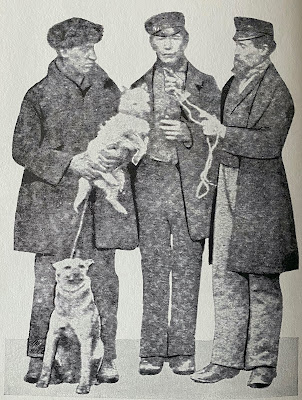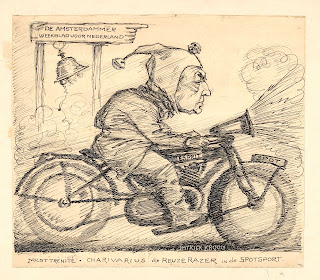It's amazing how many people here in South Dakota do not know that on September 28, 1983, Robert F. Kennedy, Jr. was arrested in Rapid City, South Dakota for possession and ingestion of heroin.
Some backstory: After being sworn in in 1982 as assistant district attorney in Manhattan, RFK Jr. failed the bar exam and resigned in July 1983, saying he needed a rest. Apparently he hadn't shared with anyone, including his employers, the fact that he'd been doing heroin since at least 1969, when he was 15 years old. (He later told the New Yorker (July 7, 2023), “I was a heroin addict for fourteen years. I’m lucky to be alive. People have plenty of reason to write me off forever because of the way I conducted my life during that fourteen-year period.")Anyway, in September, he ended up on a Republic flight to Rapid City, where he either
- got into a spat with another traveler on the flight, and went to the toilet where he did some heroin, OR
- fell sick on an airplane (most likely from doing heroin in the toilet) on the way out there.
In any case, when the plane arrived in the airport, the Rapid City police met the plane at the airport and arrested him for possession of a small amount of heroin. Who also met him at the airport was Bill Walsh, the prior owner of the Franklin Hotel in Deadwood a state congressman, ex-priest, now in the SD Hall of Fame, and strong Democrat, allegedly to help Robert Jr to a rehab center. (Anonymous source)
"Heroin possession is a Class 4 felony with a penalty that may include a fine of up to $20,000, up to 10 years in prison, or both.
The maximum penalty for the unlawful ingestion of a Schedule I or II controlled drug or substance is 5 years in prison and a $10,000 fine." (South Dakota Law Code)
Being from a famous, wealthy, and white family, RFK Jr. did not get either of those sentences. It probably also helped that his defense attorney was John Fitzpatrick Sr, who'd moved from Boston to Rapid City after the mob injured his leg with a car bomb. (At the time, he was representing a mob hitman who the mob feared was about to become an informant. He later became a SD judge.)
Now I admit, this steams me up: For one thing, instead of jail time pending trial and sentencing, RFK Jr. got to go to a drug treatment center. (I have no idea which one.) That doesn't happen for poor folk. Or even "middle class" folk. For one thing, inpatient drug treatment centers cost a lot of money. Try between $10,000 and $30,000 on average for a 30 day program, and not all health insurance will cover it. (Source) And I know far too many people who have been sentenced to the full 10 years plus 5 years, and been slapped with the $30,000 fine, which they can only afford to pay off if deal drugs as soon as they get out to raise the cash. That or win the lottery.
Anyway, finally, at the last moment, RFK pled guilty to a single felony charge of possession of heroin in February 1984, and got two years' probation and community service. Kennedy did his community service working as a volunteer for Riverkeeper, an environmental organization in the Hudson Valley (not in Rapid City) founded by Robert H. Boyle (SPOILER ALERT: This will be very important in a few moments!) and was required to attend regular drug-rehabilitation sessions. His probation ended a year early. Chances are, his record has been expunged as well. (Wikipedia, UPI.)
First of all, good for RFK, Jr., that he got clean and stayed clean.
Secondly, this is not the story that would make a great documentary.
THIS IS:
A while back, Washington Post did a story on Robert F. Kennedy Jr.'s tenure at Riverkeeper, from his volunteer year of commnity service (see above) to becoming their senior attorney in 1985, to his dramatic resignation in 2017 where he said (completely falsely) “It is extraordinarily difficult to leave the organization which I co-founded thirty-three years ago, built from the ground up and to which I’ve devoted most of my career."
As I said before, Riverkeeper was founded by Robert H. Boyle, a renowned environmentalist, was the founder of the original organization, Hudson River Fisherman's Association (HRFA) in 1966, which later changed its name to Riverkeeper. HRFA and Riverkeeper's purpose was to clean up the Hudson River, and to continue to fight environmental pollution in the Hudson River Valley. They were very successful. (Wikipedia)
So what happened?
Well, RFK Jr. had risen through the ranks to become Riverkeeper's primary attorney and a very important fundraiser for the organization. He also co-founded an environmental litigation clinic at Pace Law School in 1987 that worked primarily on cases for Riverkeeper. John Humbach, a former Pace law professor and associate dean, said Kennedy quickly became famous among students as a dazzling instructor. And he had, as they say, connections with the rich, famous, and politically active.
But not everyone was dazzled:
Alex Boyle, son of Robert H. Boyle, became wary of Robert F. Kennedy Jr. following an incident when they were collecting samples from Quassaick Creek. “I said to my father, ‘You have a pet rattlesnake. Eventually he’s going to bite you.’” (Jeenah Moon for The Washington Post)
And then in 1999, he hired William Wegner. "Kennedy described him as a skilled scientist, but Riverkeeper had not been looking for a scientist. As Boyle later described it, he became suspicious — and then horrified — as he began digging into Wegner’s background. Wegner, then 49, had been released from federal prison just a few months earlier, after serving about 3½ years of a five-year sentence for tax fraud, perjury and conspiracy to violate wildlife protection laws. The charges all sprang from his roughly decade-long run as the alleged kingpin of a smuggling ring that trafficked in Australian cockatoos.
 |
| Cacatua_leadbeateri_-flying_-Australia_Zoo-8.jpg: Richard.Fisher derivative work: Snowmanradio, originally posted to flickr at Major Mitchell's Cockatoo at Australia Zoo and uploaded to commons at Cacatua_leadbeateri_-flying_-Australia_Zoo-8.jpg |
"According to prosecutors, Wegner recruited a team of at least 10 “mules” who raided tree hollows in Australia to steal the birds’ eggs. The mules incubated the eggs using Styrofoam and hair dryers and then hid their contraband in special vests as they flew back to the United States. If the eggs hatched en route, Wegner’s couriers had instructions to flush the chicks down the airplane toilet."
"Boyle was livid when he learned about Wegner’s past and ordered that he be fired. Kennedy objected, taking his case to the board. Among other things, he argued that Wegner was an experienced scientist who would come cheap because of his inability to find other work and that his crimes had involved birds so common in Australia they were considered agricultural pests. 'Every species that he smuggled was a vermin species that the Australian government was paying people to destroy,' RFK Jr. said. But that was a lie: Today at least three of the species targeted by Wegner’s ring are listed as endangered by the Australian government.'
RFK Jr. also said that Wagner had been working for "environmental consulting firms" in the Hudson River Valley for years. That also was a lie.
What RFK Jr. didn't say was that he and Wagner had an old bond, an obsession with raptors: “We weren’t friends,” he said in an interview. “I mean, we’re friends in terms of — you know, I’m kind of a friend with anyone who’s flying a hawk. You have an instant basis for friendship.”
But the two did share a close mutual friend and fellow Hudson Valley falconer, Thomas Cullen III. Cullen, whom Kennedy described to The Post as “one of my best friends,” appears in a November 2023 campaign video about the presidential candidate’s love of falconry.
Now this is interesting: Cullen himself was also involved in bird smuggling: in 1984, he was arrested by Australian authorities, who alleged he had been climbing a tree with a hatchet in a wildlife sanctuary in Western Australia, trying to steal eggs from a cockatoo’s nesting hollow. He pleaded guilty to charges in Australia and paid a fine. Cullen was never charged by U.S. officials in connection with Wegner’s smuggling conspiracy, which according to federal records involved several falconers from the Hudson Valley. But in 2006, Cullen was sentenced to four months in prison and a $1,000 fine for importing black sparrow hawks in violation of the Wild Bird Conservation Act and making false statements to the Fish and Wildlife Service.
Anyway, there was a board meeting over the whole Wagner hullabaloo, and RFK, Jr. managed to turn enough people to his side that he won by 13 to 8. Boyle, and his supporters, quit immediately.
With Boyle gone, RFK Jr. was President of Riverkeeper, until 2017, when he resigned for two reasons: "the toll on his family by his cross-country commute from California and the demands of his work with World Mercury Project, the anti-vaccine group that would soon become Children’s Health Defense. Under Kennedy’s leadership, the annual revenue of Children’s Health Defense would balloon from a half-million dollars to more than $23 million, placing it in the vanguard of anti-vaccination advocacy groups."
The man who had discovered an already successful environmental group while doing court-imposed community service now falsely claimed to have founded Riverkeeper, which he said had “a budget of zero” before he arrived. “It is extraordinarily difficult to leave the organization which I co-founded thirty-three years ago, built from the ground up and to which I’ve devoted most of my career,” Kennedy wrote.In an interview with The Post, Kennedy said his resignation letter “was certainly accurate as to what I believed at that time.” He added, “I have no memory of writing that letter, and I have no memory of anybody disputing anything that I said about my role at Riverkeeper.”
The Boyles did.
(The full source article from Washington Post is HERE: WaPO)
So, when is the Netflix or Hulu documentary coming out?
KRISTI NOEM ADDENDUM;
Congratulations to everyone who managed to NOT spend the weekend killing a pet dog, or a smelly billy goat, or reading about any of this. (All you have to do is look up "Kristi Noem Killed Dog" and you will be flooded with websites and memes, saying everything more eloquently, sarcastically, and profanely than even I can.)
What I will say is that many people did not realize that our Governor has done other peculiar things:
On April 6, 2019, she gathered her family around a caged raccoon and they proceeded to kill it as good family fun. She posted the pictures on her very public Governor Kristi Noem Facebook page, which you can find easily, and the date, as I said, is April 6, 2019. The pictures are still there as is this blurb:
"Love seeing kids this excited about being outside!! Our nest predator bounty program launched this week, and we’re seeing great results. Let’s get kids away from the X-box and out with the live box!"
 |
 |
|
| Scared raccoon, live in a box. | Dead raccoon out of the box. |
This was all part of her Predator Bounty project, which pays people $10 per tail to kill animals that (could) eat pheasant eggs. It has become a habit up here for locals to stop when they see roadkill of a possum or raccoon to stop and cut off the tail. It's an easy $10. If you have a hatchet or a sharp enough knife.
She asked for a flamethrower for as a Christmas gift the next year, and her staff gave it to her. So of course she made an Instagram photo with it: (LINK)
Also, she's been the centerpiece of a national workforce recruitment campaign, with herself in various job uniforms saying, basically, come to South Dakota and find jobs and freedom (the ad company was paid $2.9 million for this is out of Minnesota, not South Dakota, so ironically, there's no ad jobs here, at least not for state government). Hilariously, Sen. Michael Rohl, R-Aberdeen said, “I certainly hope the next phase isn’t highlighting a need for veterinarians."
I can see it now: Kristi dressed as a veterinarian, while a wire-haired pointer tries frantically to scrabble its way off the examination table... Jobs and freedom, people.
MEANWHLE, BSP:
My brand new story, "At the Dig" is in Black Cat Weekly #138. (HERE)
And let's not forget the wonderful anthologies, Murder Neat and Paranoia Blues, both available on Amazon.com which have, respectively, my "Bad Influence" and "Cool Papa Bell" in them:
Enjoy!










